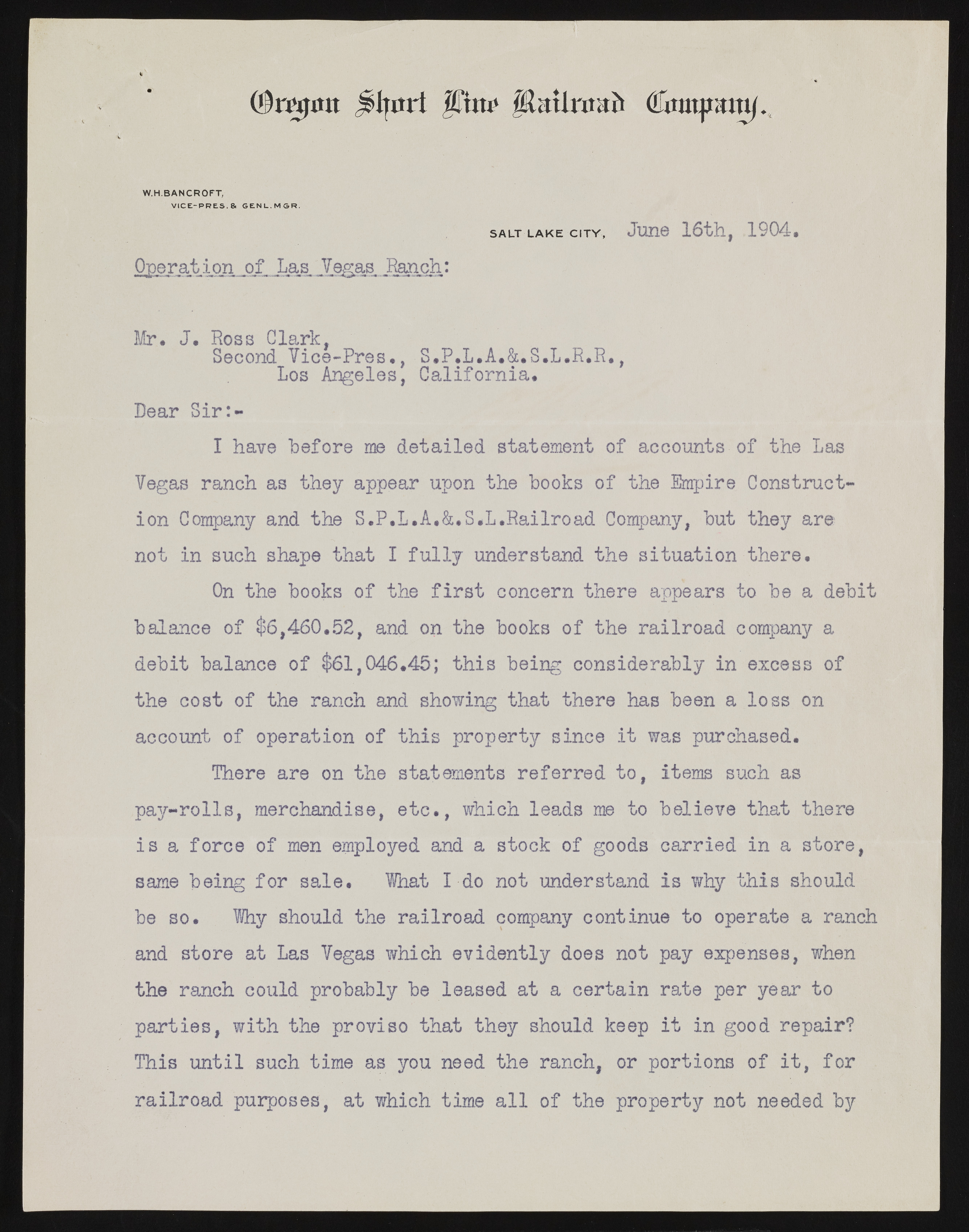Copyright & Fair-use Agreement
UNLV Special Collections provides copies of materials to facilitate private study, scholarship, or research. Material not in the public domain may be used according to fair use of copyrighted materials as defined by copyright law. Please cite us.
Please note that UNLV may not own the copyright to these materials and cannot provide permission to publish or distribute materials when UNLV is not the copyright holder. The user is solely responsible for determining the copyright status of materials and obtaining permission to use material from the copyright holder and for determining whether any permissions relating to any other rights are necessary for the intended use, and for obtaining all required permissions beyond that allowed by fair use.
Read more about our reproduction and use policy.
I agree.Information
Digital ID
Permalink
Details
Member of
More Info
Rights
Digital Provenance
Publisher
Transcription
©rajittt jSlptrt pm1 jKmlnmh Citutpam/, W.H.BANCROFT, VICE-PPES.8. GEN L. M GR. SALT LAKE CITY, June 16th, 1904. Operation of Las Vegas Ranch: Mr. J. Ross Clark, Second Vice-Pres., S.P.L.A.&.S.L.R.R., Los Angeles, California. Dear Sir:- I have before me detailed statement of accounts of the Las Vegas ranch as they appear upon the books of the Empire Construction Company and the S.P.L.A.&.S.L.Railroad Company, but they are not in such shape that I fully understand the situation there. On the books of the first concern there appears to be a debit balance of $6,460.52, and on the books of the railroad company a debit balance of $61,046.45; this being considerably in excess of the cost of the ranch and showing that there has been a loss on account of operation of this property since it was purchased. There are on the statements referred to, items such as pay-rolls, merchandise, etc., which leads me to believe that there is a force of men employed and a stock of goods carried in a store, same being for sale. What I do not understand is why this should be so. Why should the railroad company continue to operate a ranch and store at Las Vegas which evidently does not pay expenses, when the ranch could probably be leased at a certain rate per year to parties, with the proviso that they should keep it in good repair? This until such time as you need the ranch, or portions of it, for railroad purposes, at which time all of the property not needed by

